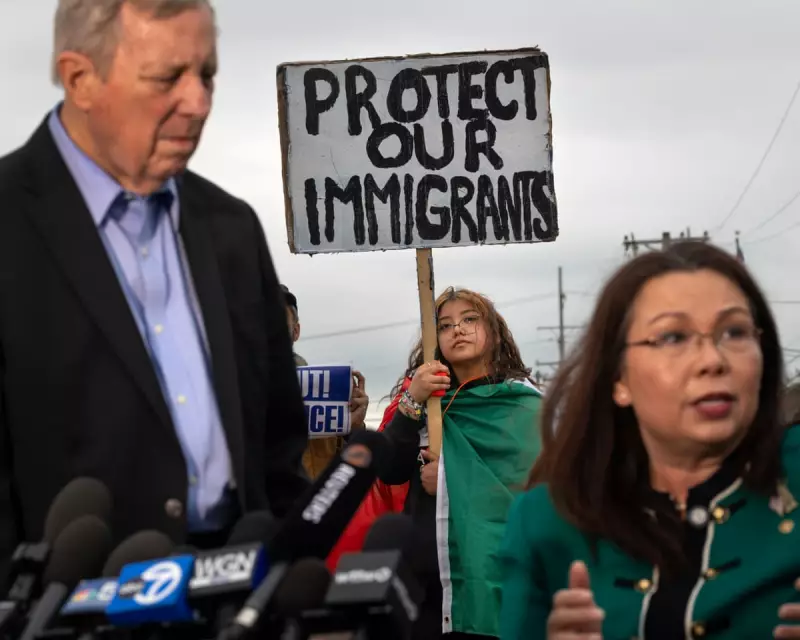
In a dramatic escalation of domestic immigration enforcement, National Guard troops have been deployed to work directly with Immigration and Customs Enforcement (ICE) officials in two major American cities. The unprecedented operation marks a significant expansion of the military's role in civilian immigration matters.
Military Presence in Urban Immigration Operations
The deployment places uniformed National Guard personnel alongside federal immigration agents in both Memphis, Tennessee and Chicago, Illinois. This collaboration represents a new frontier in the ongoing debate about immigration enforcement tactics and the appropriate use of military resources within US borders.
While specific details about the scale and duration of the operation remain limited, sources confirm that Guard members are providing direct support to ICE field operations. The arrangement blurs traditional lines between military and law enforcement functions, raising constitutional and practical concerns among civil liberties advocates.
Expanding Role of State Militias in Federal Enforcement
This deployment follows growing political pressure to address immigration concerns through increasingly robust measures. The use of National Guard units, which typically fall under state control but can be federalised for specific missions, creates a complex jurisdictional landscape.
Critics argue that involving military personnel in immigration enforcement could damage community trust and represents an overreach of governmental power. Supporters, however, contend that the situation requires all available resources to maintain border security and enforce immigration laws.
Legal and Ethical Questions Emerge
The deployment raises several pressing questions:
- What specific duties are National Guard personnel performing alongside ICE agents?
- How does this collaboration comply with posse comitatus restrictions on military involvement in civilian law enforcement?
- What training have Guard members received for immigration enforcement operations?
- How are local communities responding to the increased military presence?
Broader Implications for Immigration Policy
This development comes amid ongoing national debates about immigration reform and enforcement strategies. The decision to deploy National Guard troops suggests a shift toward more aggressive tactics that could set precedents for future administrations.
Community organisations in both affected cities have expressed concern about the potential impact on immigrant communities, including possible chilling effects on cooperation with local law enforcement and access to essential services.
The situation continues to develop as civil rights groups monitor the operation closely and lawmakers demand more transparency about the scope and legal authority for this unprecedented collaboration between military and immigration enforcement agencies.






